For so many people, faith plays a huge role in their daily lives. While Chamblee may just be a high school in Georgia, its religious and ethnic diversity is vast. From Young Life to the Jewish Student Union to the Muslim Student Association, faith impacts students in and outside the halls of Chamblee High School.
Mary Lawton Jones (‘27) is a practicing Christian and the president of the Fellowship of Christian Athletes (FCA) club at Chamblee. She said her faith plays a huge role in her daily life.
“I try to focus on my faith throughout the day pretty much at all times because it just makes me treat others better,” said Jones.
She remarked in an interview how cool she thinks it is to see so many different people of different faiths expressing themselves at Chamblee and how the school encourages that.
Camille Avery (‘27) is a Christian and believes public school isn’t always the most religiously inclusive place.
“When I was in middle school, I had a teacher tell me that Christianity is not real,” said Avery. “I really don’t feel like [public] school nurtures my faith or different faiths.”
Avery gave props to AP World History, however, which she said has been exposing her to many different beliefs.
“It helps me be more supportive, understanding, and knowledgeable of other religions,” said Avery.
Joey David (‘25) is the vice president of the Jewish Student Union (JSU) at Chamblee. He understands that faith in the classroom is against school system rules, but believes clubs like JSU are vital.
“I think it’s important for students to know that they have a community they can go to, especially for JSU, when there are not many Jews in this school,” said David. “It’s important to gather those Jews together and create a family out of them.
A few students also mentioned they felt an amount of disrespect at JSU meetings. Noa Zilber (‘27) said she noticed some people mocking a Rabbi teaching Hebrew to the club members.
So, is the school as inclusive on the topic of religion as it seems? Riasha Ullah (‘25) is an officer of the Muslim Student Association at Chamblee and she recognized that practicing her faith (Islam) can sometimes be challenging at school.
“There’s room for growth in understanding and supporting the specific needs of Muslim students,” wrote Ullah. “The school could offer a dedicated prayer space for daily prayers that take place during school hours and create more opportunities to educate everyone about different faiths.”
Through the challenges, Riasha Ullah recognized how important MSA was to her.
“Being able to share our culture with others makes me feel proud and supported. It’s more than a club–it’s my community,” wrote Ullah.
Cora Scherrer (‘26) is writing a research paper on religion in college. She explained that factors of how college students practice or don’t practice religion when they’re living on their own are their political standings, various effects of socialization, religious upbringing, and life circumstances. She said while clubs in public schools that are religion-based are okay, anything beyond that can be unfair.
“There can be clubs that are related to religion, but I don’t think it should be a part of the school itself because there are people of other religions and some people who aren’t religious,” said Scherrer. “So I feel like that’s not really fair.”
School is supposed to be an inclusive place, which is why public schools can’t push religion into the classroom. Inside those classrooms are teachers who, while they may be religious, aren’t allowed to impose that in a class setting. Because public school teachers are government employees, they aren’t allowed to push their own religious opinions on their students, and that is understood by the teachers of Chamblee.
Mr. Wanddolff Bretous, the French teacher at CHS, is a practicing Muslim but says he avoids religious conversations in his classroom.
“[The school system] says religion, politics, and sexual orientation shouldn’t be part of a classroom,” said Bretous.
Dr. Kathryn Zuehlke, chemistry and AP chemistry teacher at Chamblee believes in a strong separation between church and state, just as Mr. Bretous had said.
“I personally don’t think it’s the role of Chamblee to nurture different beliefs,” said Zuehlke. “I mean, I think that [the school] should make everybody feel comfortable, but it’s in our constitution, separation of church and state, and we are a government organization. I’m a government entity, and [speaking about religion] is not my responsibility.”
While the separation of church and state in public school is in effect, outlets for students to practice their faith in places like clubs are important because they allow students to connect with other students with the same beliefs. Students like Mary Lawton Jones and Joey David know how important religion clubs are, as officers of JSU and FCA, and while public schools can’t put faith in the classroom, they can make sure all students feel welcomed and included at school. Every student deserves to feel like they belong at school regardless of their faith, and according to Chamblee students, the school is doing its part, so it’s time for fellow students to do the same. We are all more alike than different, and attending a diverse school like CHS allows students to be curious about different beliefs, even with just a simple conversation at a club meeting. As long as we remain curious and not judgemental, we can learn a lot from others.

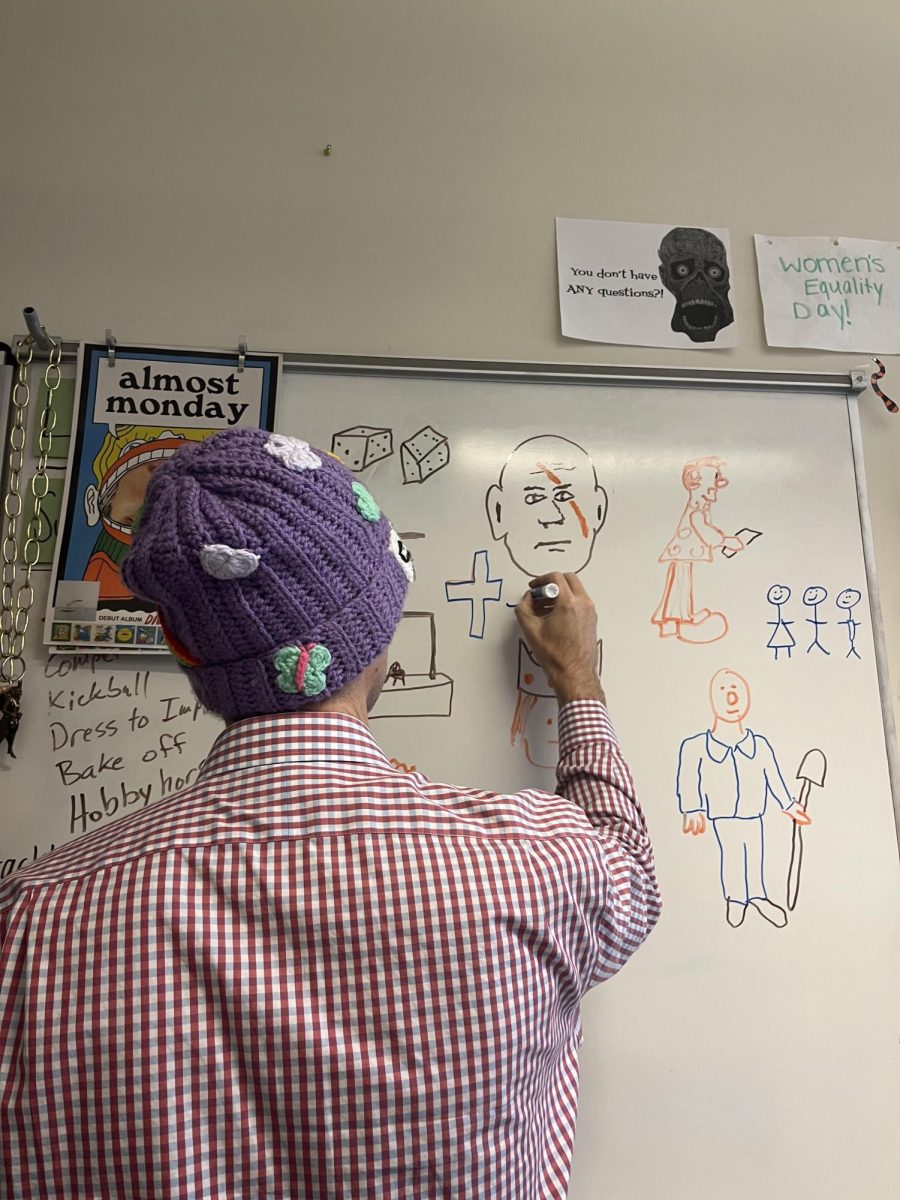
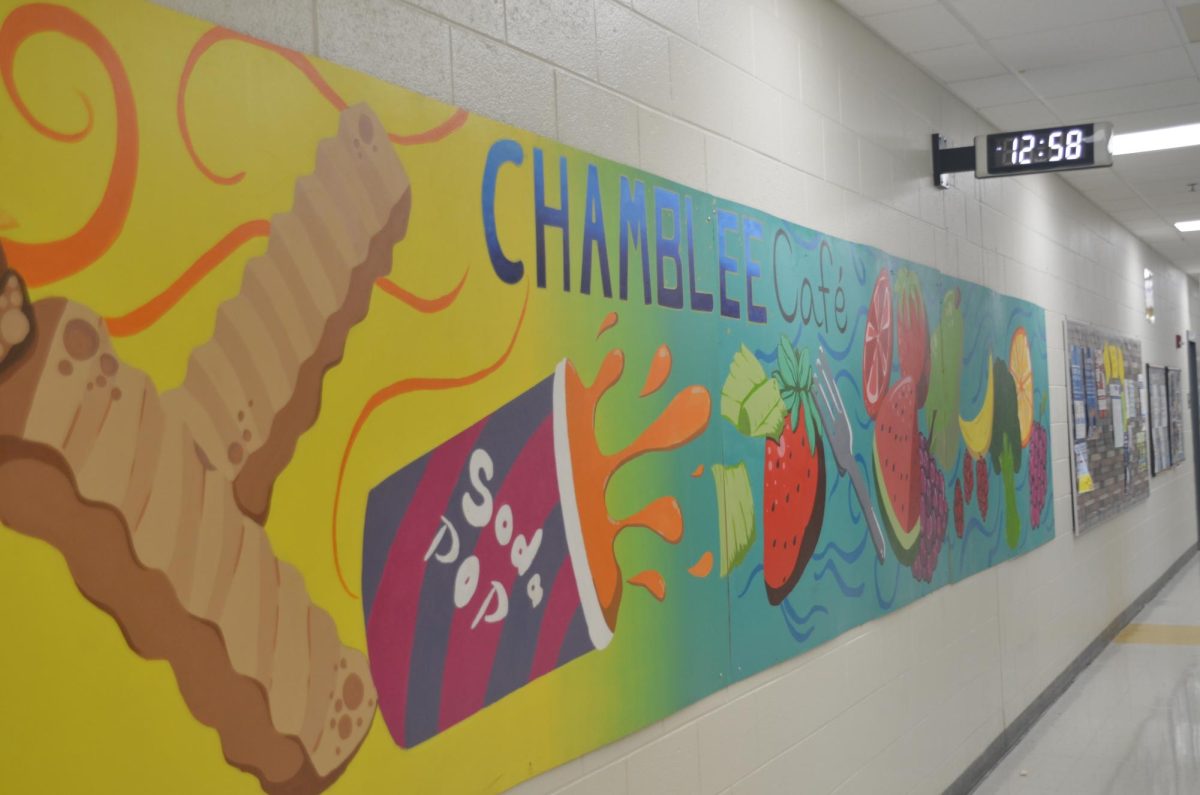
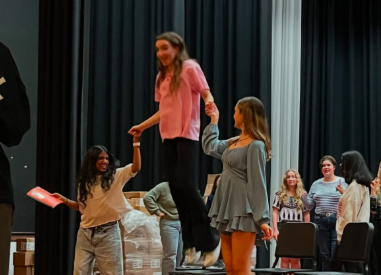
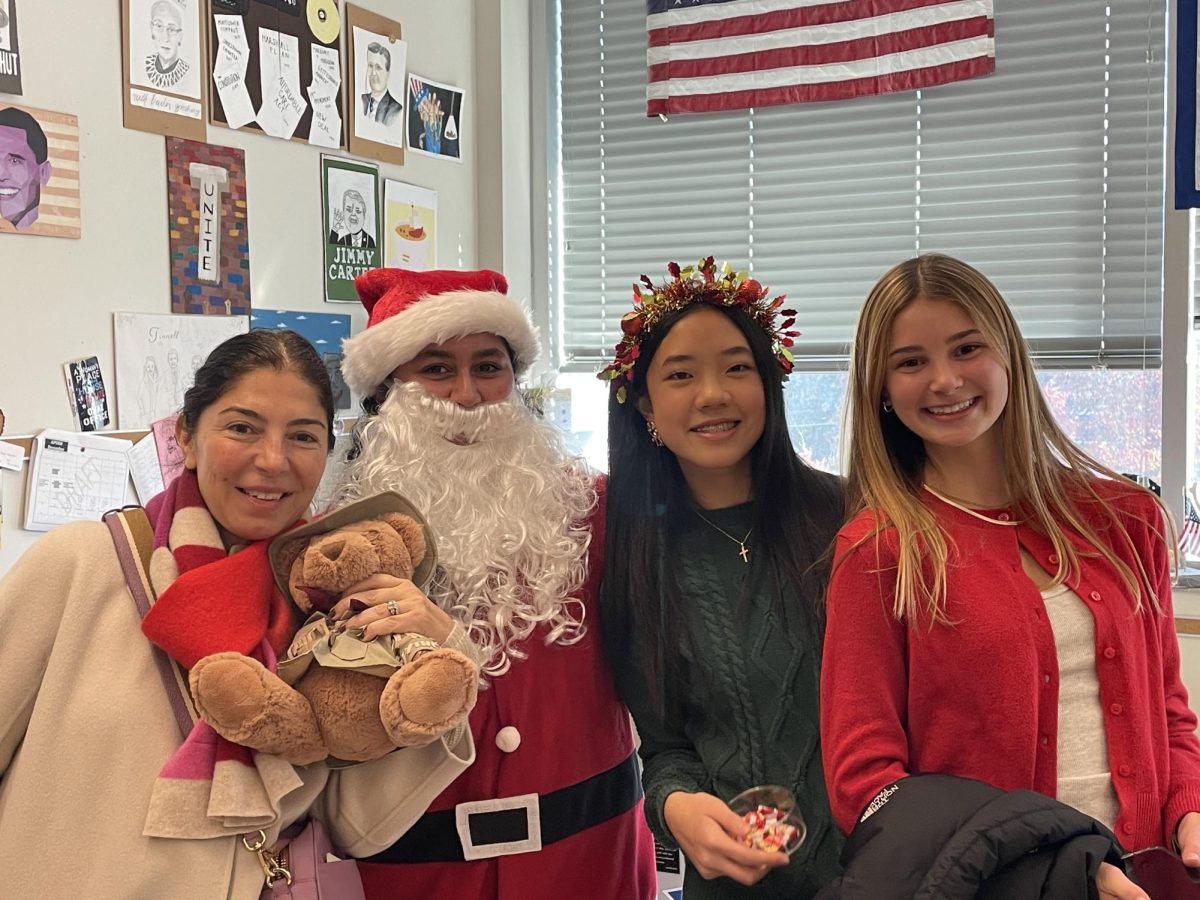
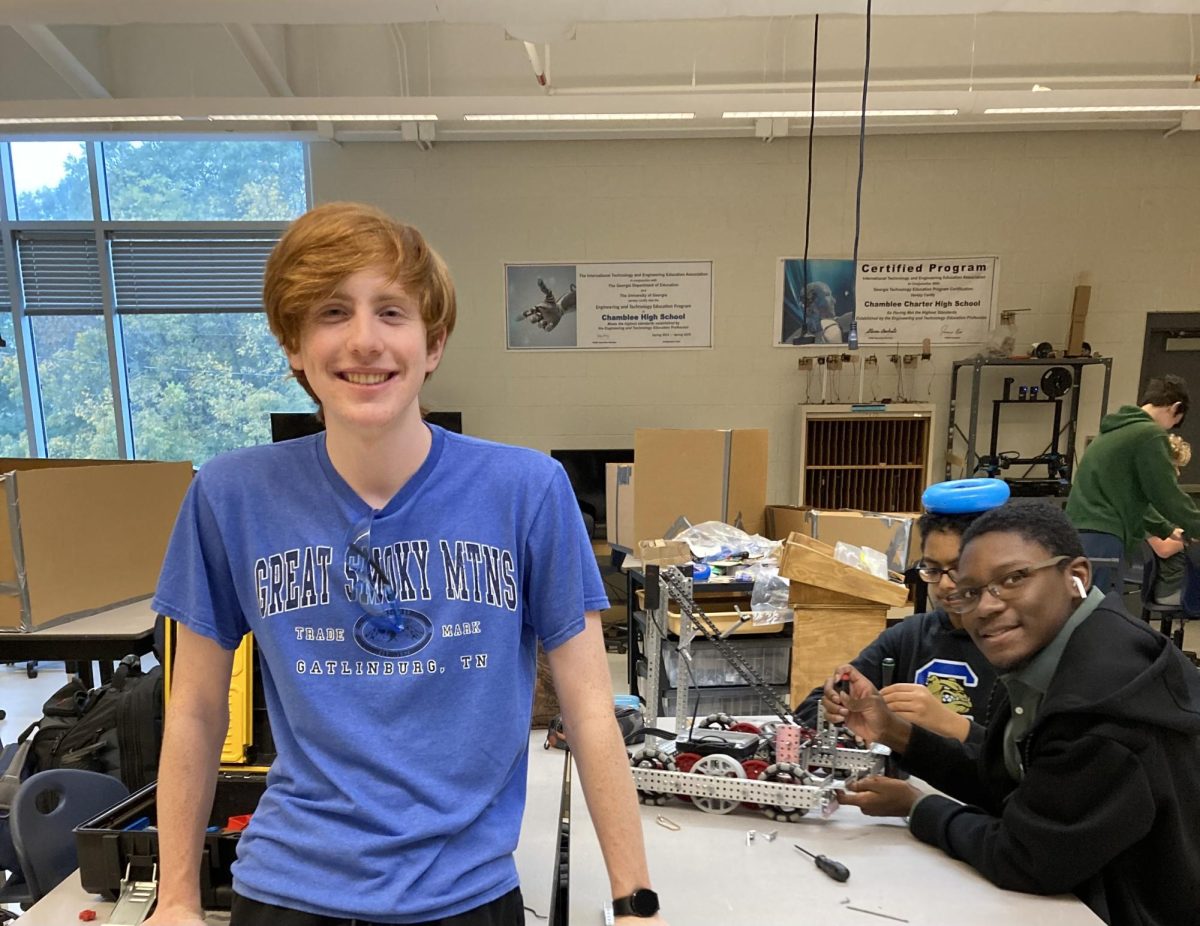
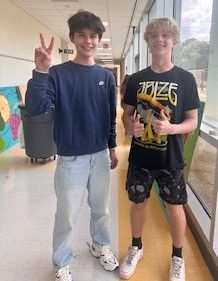
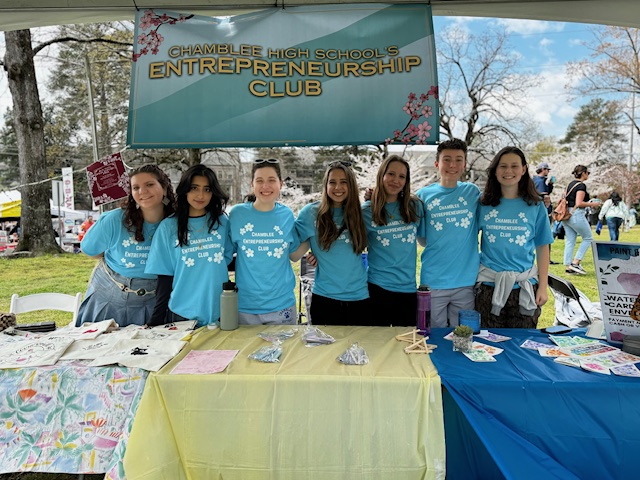
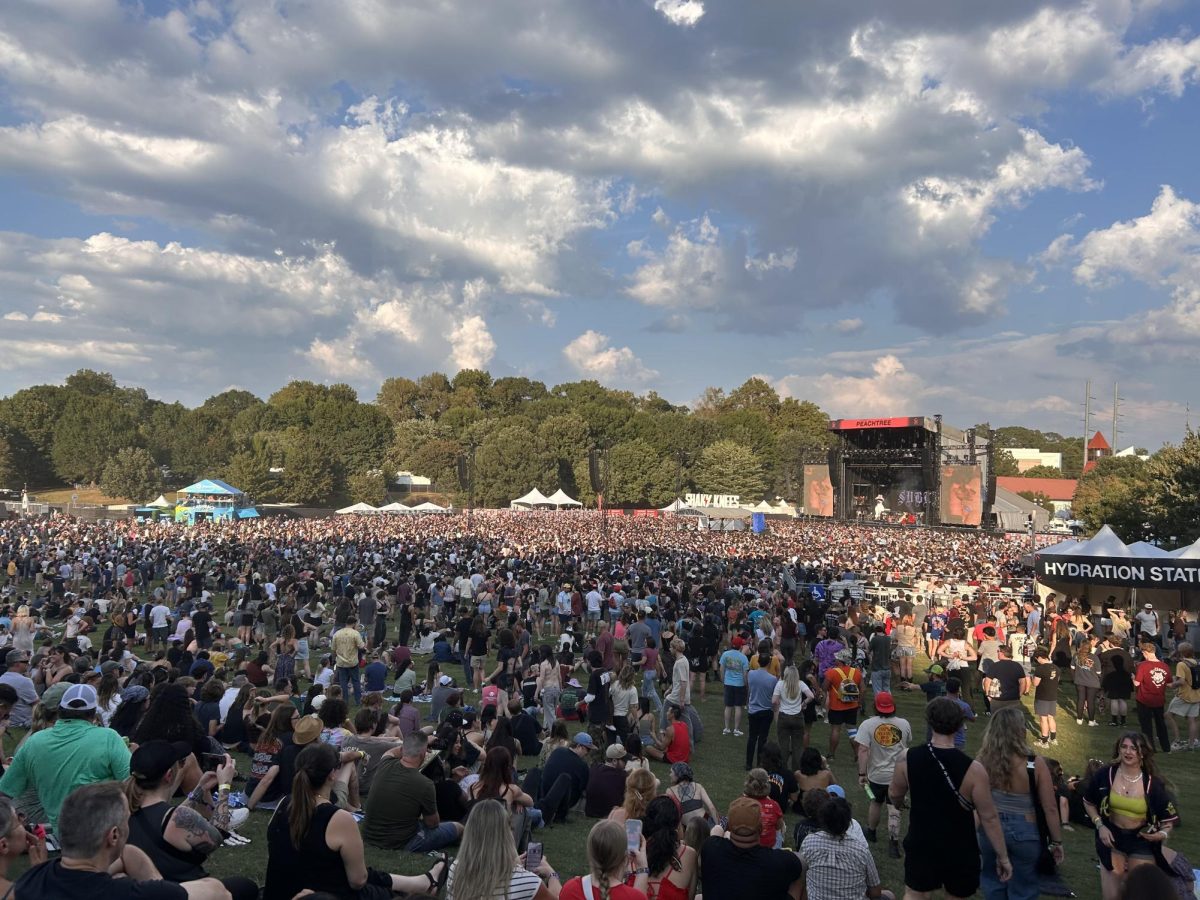





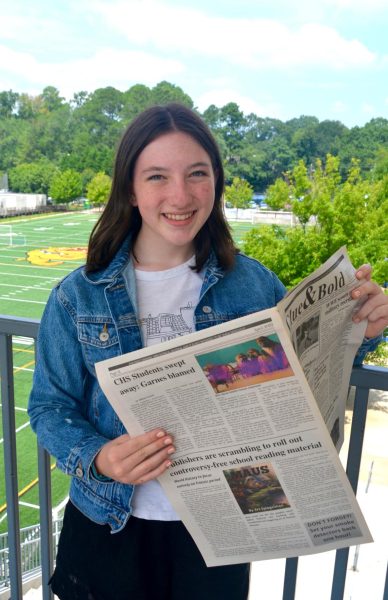
Maren Merkel • Dec 6, 2024 at 1:16 pm
This is a well-written article about an important topic. Slay the day away and good job with the photo (which is Mr. Avett in a “Sour” hat).